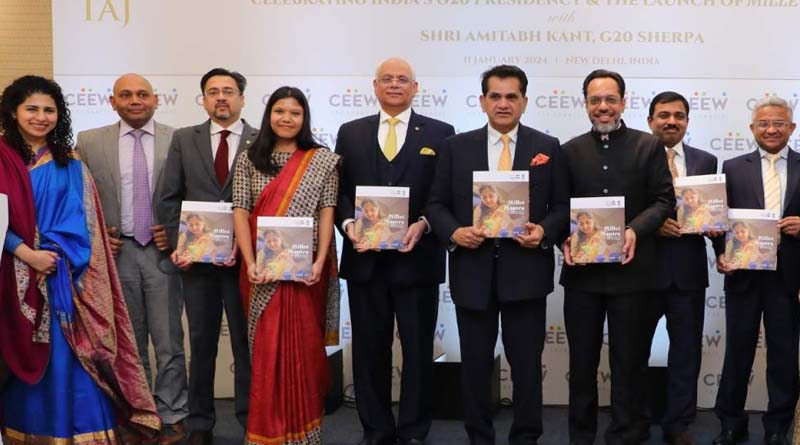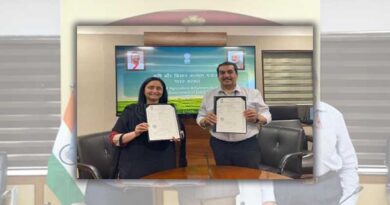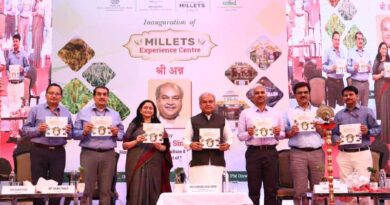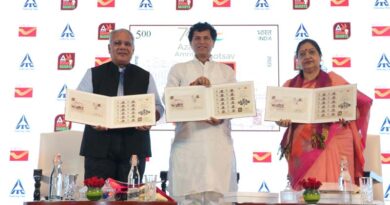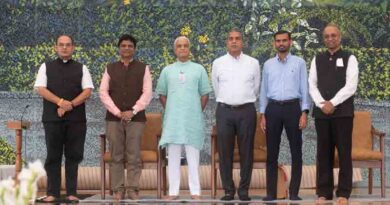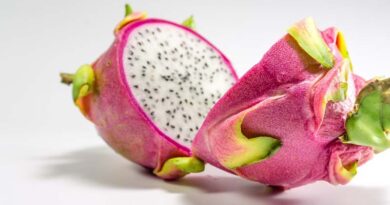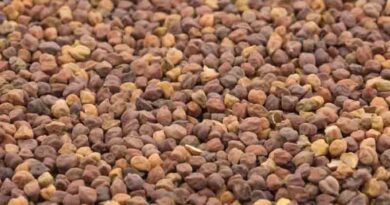‘It’s time to incentivise Indian farmers to cultivate millets’: Amitabh Kant
12 January 2024, New Delhi: “It is time to incentivise Indian farmers to cultivate millets. Millets are a superfood – they are nutritious, require less water, and can break the vicious cycle of malnutrition. India is the world’s largest producer and a global champion of millets, with a projected market value of USD 15 billion by 2025. I compliment the Council on Energy, Environment and Water (CEEW), and the Taj hotels, for championing India’s ‘Millet Mantra’ through this meticulously researched G20 collectible book,” said Mr Amitabh Kant, India’s G20 Sherpa, at the launch of the book Millet Mantra in New Delhi. The event saw prominent government officials, diplomats, industrialists, and key stakeholders in sustainable food systems gathered to celebrate India’s G20 presidency and the book launch.
Reflecting on India’s G20 Presidency, Mr Kant further highlighted that there were three main challenges while arriving at a consensus —namely, energy, climate and geopolitics—which were taken care of with a new GDP, a Green Development Pact.
On millets, Mr Kant added, “India was able to push most countries to champion millets, which Brazil will take forward in its presidency too”.
Millet Mantra: The Culinary Centerpiece of India’s G20 Presidency by CEEW and the Taj hotels is a proud collaboration that showcases stories of smallholder farmers, chefs and entrepreneurs who are shaping the future of millets. From sustainable farming of millets to crafting gourmet beers from them, the book features stories of champions who are creating a sustainable food system around the climate-resilient and nutritious grains. This book also takes readers on a journey from the millet farms of rural Odisha in India to the kitchens of world-renowned chefs cooking with these healthy cereals. Interspersed with these stories are exclusive recipes of millet dishes curated by top chefs from the Taj Group and served at the events held in India during its G20 presidency.
Millet Mantra highlights on-ground champions of the grain such as Sanjulata Mahanta, a smallholder farmer from Odisha’s Keonjhar district, who took to growing mandya (finger millet) because it required less water, fewer inputs and was more profitable for her and her community. It also shows the international millet revolution, for instance, how South African chef Mokgadi Itsweng is reviving sorghum and other millets in South African cuisine, or how chef Justin Horne paid tribute to the International Year of the Millet with his millet caviar and harissa roast carrot in London.
Dr Arunabha Ghosh, CEO, CEEW, said, “Even as we celebrate and commemorate India’s G20 Presidency, one more thing happened in 2023 – the International Year of Millets. The resurgence of millets on the Indian thali, spearheaded by the Indian government and businesses is being welcomed by people seeking more nourishing yet affordable meals. Twelve Indian states have policies promoting the cultivation, distribution and consumption of millets. Some, like Odisha, have taken a holistic farm-to-fork approach, which creates a virtuous value chain between smallholder farmers, including communities led by women, who are integral to the country’s food security. This book is an ode to the spirited agents of change driving the modern millet mantra in India. It is our endeavour to bring you a handful of stories of smallholder farmers, chefs, entrepreneurs, and officials who are inventing the future of this ancient, humble grain.”
Puneet Chhatwal, MD & CEO, Indian Hotels Company Limited (IHCL), said, “Intrinsically bound with the country’s history, IHCL’s iconic brand Taj has long been heralded as the custodian of Indian heritage. Diversity, respect, and equity are the cornerstones of our culinary endeavours. Curating the G20 recipes featured in Millet Mantra was a meticulous effort to showcase the significance of the grain, a voyage from the fertile fields to the grand stages of the G20. The process was not merely about preparing exceptional dishes but also weaving stories of farmers and chefs into the narrative.”
The book has several innovative millet recipes such as a kodo millet khichdi, a jowar matar shorba, a rajgira smoothie, and ‘Bolo Gosto’, a versatile Portuguese cake with proso millets. The recipes are steeped in the traditions and culture of different parts of India but are also modern.
Also Read: Meghmani Organics Limited forays into crop nutrition segment with Nano Urea
(For Latest Agriculture News & Updates, follow Krishak Jagat on Google News)

